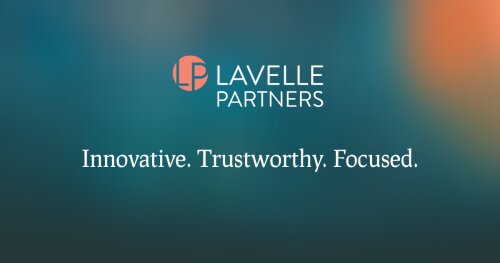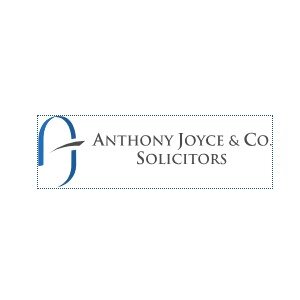Best Debt & Collection Lawyers in Ireland
Share your needs with us, get contacted by law firms.
Free. Takes 2 min.
Or refine your search by selecting a city:
List of the best lawyers in Ireland
About Debt & Collection Law in Ireland
Debt and Collection Law in Ireland governs the processes and protocols that creditors must follow when attempting to collect debts from individuals or businesses. It aims to balance the rights of creditors to recover debts with the rights of debtor individuals to be protected from undue harassment and unfair practices. The Credit Control Act of 1995 and the Consumer Protection Code are key regulations that dictate how debt recovery must be conducted. However, several other laws and statutory instruments also apply, depending on the specific circumstances of a debt case.
Why You May Need a Lawyer
There are several situations where seeking legal assistance in debt and collection matters may be necessary:
- Receiving Collection Notices: If you are being pursued by creditors or debt collectors, a lawyer can help you understand your rights and obligations, and offer protection against unlawful collection practices.
- Disputing a Debt: An attorney can assist if you believe a debt claim against you is incorrect, helping you dispute the amount or existence of the debt.
- Debt Settlement: Lawyers can negotiate with creditors on your behalf to settle debts for less than the full amount owed or to establish a feasible repayment plan.
- Bankruptcy or Insolvency: If you're considering bankruptcy or insolvency as a solution, legal advice is crucial to navigate the complex laws and implications involved.
- Enforcement Actions: If a creditor has initiated legal proceedings to recover a debt, a lawyer can help you respond appropriately, represent you in court, and possibly secure a favorable outcome.
Local Laws Overview
Some of the key laws regarding debt collection in Ireland include:
- Consumer Credit Act 1995: This regulates how consumer credit agreements should be managed, including debt collection practices.
- The Non-Fatal Offences Against the Person Act 1997: This legislation includes penalties for harassment, which can be applicable in cases where debt collectors pursue debtors aggressively.
- Personal Insolvency Act 2012: This Act provides mechanisms like Debt Relief Notices (DRN), Debt Settlement Arrangements (DSA), and Personal Insolvency Arrangements (PIA) for individuals struggling with unsustainable debts.
- European Communities (Unfair Terms in Consumer Contracts) Regulations 1995: This protects consumers from unfair terms in consumer contracts, which can affect debt collection.
Frequently Asked Questions
What should I do if I'm contacted by a debt collector?
It is important to remain calm. Request all communications in writing and consult a legal advisor to understand your rights and obligations.
Can a debt collector contact me at work?
Debt collectors should only contact you at work if no alternative contact information is available. Even then, these contacts should be limited and not distressing.
What actions are considered harassment by debt collectors?
Unreasonable pressure or intimidation, persistent calling, threatening behavior, or misleading statements are considered harassment.
How long can a creditor pursue a debt in Ireland?
The Statute of Limitations in Ireland generally allows creditors to pursue a debt for up to six years from the last payment or acknowledgment of the debt.
What is a Debt Relief Notice?
A Debt Relief Notice (DRN) allows for the write-off of qualifying debts up to €35,000 for people who have very little disposable income or assets.
How can I dispute a debt claim?
Provide written notice disputing the debt, and include evidence to support your claims. Seeking legal guidance is advisable throughout this process.
Will my credit rating be affected by unpaid debts?
Yes, unpaid debts can negatively affect your credit rating, making it more difficult to obtain loans, credit cards, or mortgages in the future.
Can I be imprisoned for not paying debts?
No, imprisonment for civil debt is not allowed in Ireland; however, it is crucial to engage with legal processes and seek resolutions.
What should I do if I'm served with a court summons for a debt?
Contact a lawyer immediately. Ignoring a court summons can result in a default judgment against you, potentially leading to more aggressive collection actions.
Can a creditor take money directly from my paycheck or bank account?
Only with a court order. Creditors can apply for a garnishee order to receive money directly from your salary or bank account once approved by the court.
Additional Resources
Consider consulting the following resources for additional information and support:
- MABS (Money Advice and Budgeting Service): MABS provides free advice to people who are experiencing financial difficulties.
- The Competition and Consumer Protection Commission (CCPC): Offers information about consumer rights and obligations in financial transactions.
- The Insolvency Service of Ireland (ISI): Provides information and support for issues related to insolvency and debt resolution.
- Citizens Information: Offers comprehensive guidance on debt and collection laws in Ireland.
Next Steps
If you need legal assistance in the field of debt and collection, consider the following steps:
- Evaluate Your Situation: Take stock of your financial situation and gather all relevant documentation related to your debts.
- Seek Professional Advice: Contact a legal professional specializing in debt and collection matters to discuss your options.
- Develop an Action Plan: Work with your legal advisor to create a strategy to address your debts, whether through negotiation, legal defense, or debt restructuring.
- Contact a Debt Support Organization: Organizations like MABS can provide additional support and resources.
- Stay Informed: Keep updated on any correspondence and developments in your case, and maintain regular communication with your legal advisor.
Lawzana helps you find the best lawyers and law firms in Ireland through a curated and pre-screened list of qualified legal professionals. Our platform offers rankings and detailed profiles of attorneys and law firms, allowing you to compare based on practice areas, including Debt & Collection, experience, and client feedback.
Each profile includes a description of the firm's areas of practice, client reviews, team members and partners, year of establishment, spoken languages, office locations, contact information, social media presence, and any published articles or resources. Most firms on our platform speak English and are experienced in both local and international legal matters.
Get a quote from top-rated law firms in Ireland — quickly, securely, and without unnecessary hassle.
Disclaimer:
The information provided on this page is for general informational purposes only and does not constitute legal advice. While we strive to ensure the accuracy and relevance of the content, legal information may change over time, and interpretations of the law can vary. You should always consult with a qualified legal professional for advice specific to your situation.
We disclaim all liability for actions taken or not taken based on the content of this page. If you believe any information is incorrect or outdated, please contact us, and we will review and update it where appropriate.
Browse debt & collection law firms by city in Ireland
Refine your search by selecting a city.
















